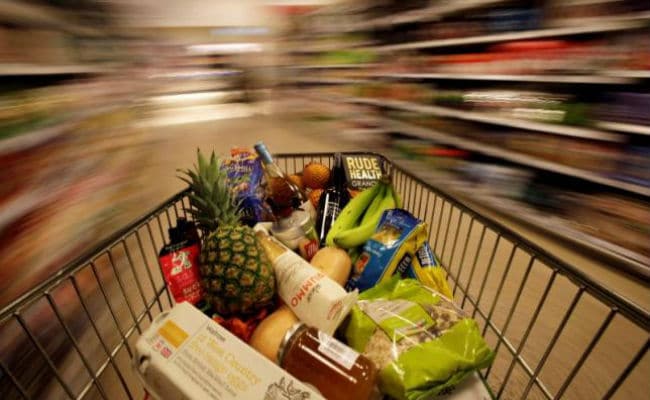July Consumer Inflation Data Could Delay Rate Move By RBI, Say Experts

Mumbai: Annual consumer price inflation picked up to 2.36 per cent in July from 1.54 per cent in June, as a decline in food prices slowed sharply, government data showed on Monday. The rise was faster than the 1.87 per cent forecast by economists in a Reuters poll.
Aditi Nayar, economist, ICRA
“The rebound is in line with expectations. In terms of the outlook, we do see it (inflation) ramping up further and crossing 4 per cent by October.”
“That will be led by seasoning foaming up in prices of vegetables, which is under way. In any case, the favourable base effect will go away and HRA (housing rent allowance) increases will affect the housing inflation in a staggered manner.”
“So based on the anticipated trajectory and the commentary by the MPC (Monetary Policy Committee) we see a low likelihood of further rate cuts in FY18.”
Tirthankar Patnaik, India strategist, Mizuho Bank
“One was not expecting the pick up in inflation this soon, but going by the indicators we got from vegetable food prices and WPI data, we expect CPI to increase further, reaching to about 4 per cent by the end of the fiscal (year).”
“There is very limited scope for the RBI to cut rates at the moment given the turnaround in inflation rate.”
Radhika Rao, group economist, DBS
“A sharp rise in headline inflation was expected, likely mostly driven by higher perishables and adjustments in the housing index.”
“Structural improvements in farm and food management are underway, but in the interim, seasonal vagaries will continue to swing prices of perishables.”
“The central government’s housing allowance changes are likely to perk the component over the next few months, but the net impact will be contained if states don’t follow through the hikes.”
“Policy rates have likely plateau’ed for now, with room for rate cuts requiring a sharp downward drift in core inflation or growth slump in FYH2.”
Anjali Verma, economist, Phillipcapital India
“(Inflation of) 2.36 per cent is in line with our expectations. This has largely been led by higher vegetable prices, which is also reflecting in WPI.”
“We expect vegetable prices to remain high even in the month of August. This, in turn, is taking the entire trajectory on the higher side and therefore reducing the chances of another rate reduction by RBI. Also, the base effect will worsen towards the end of the financial year, so that will take the number higher.”
Puneet Pal, head of fixed income, BNP Paribas Mutual Fund
“It’s too early to say if inflation in India is undergoing a structural shift. By March 2018, expect overall inflation to be below 4 per cent. The only caveat to this are food prices since right now we are seeing only vegetable prices going up.”
“I think the RBI is cautious, but not behind the curve when it comes to cutting rates. There are a few factors like the US Fed contracting balance sheet in September and also the question of farm loan waivers.”
Tushar Arora, senior economist, HDFC Bank
“The bond market for the past couple of days was pricing in this sort of an uptick in inflation. A reading above 2 per cent reinforces expectations that the RBI could now stay on hold for an extended period.”
“While inflation for FY17 could remain below the RBI’s target, the focus of the MPC (monetary policy committee) is likely to soon shift towards upside risks for FY19.”
[“source=profit.ndtv”]

